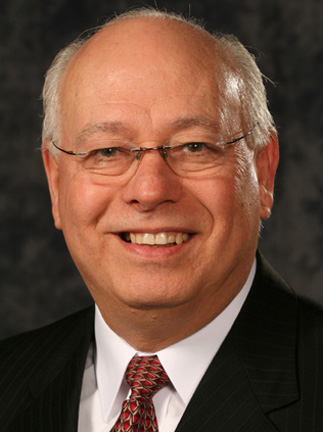By John Yeats, Executive Director of the Missouri Baptist Convention
JEFFERSON CITY, Mo. (BP) — This happens more often than you think: Members of a Sunday School class decide to circumvent their offerings that would normally go through the church’s systematic giving budget in order to give to a worthy cause or need. Maybe there has been an appeal for some particular project or independent missionary or humanitarian need — all good things.
Church leaders would say, “Ouch! It’s okay to pass the plate a second time around to meet a specific need but the tithe [systematic giving] ought to be given to the local church ‘storehouse.’ It is how we work together to do our church’s collective ministries.”
Calls come to our state convention office on a regular basis from pastors and church leaders. They say, “We receive repeated requests for direct support from meaningful, high impact ministries. What do we do?”
Great question and big problem.
While para-church ministries may have an up-close high impact, there are a whole series of questions to ask, like “Who is on the board of directors? Who reviews the audit of their books? What percentage of expenses is spent on operations and administration?” The same kind of questions Southern Baptists ask with each ministry supported by the Cooperative Program.
I’ve even heard some formidable national para-church ministries say they are only able to do what they do because of the generosity of Southern Baptist churches and individuals. Granted, the Southern Baptist Convention is the largest non-Catholic religious group in North America. It would stand to reason that para-church ministries target Southern Baptist churches.
However, every local church must evaluate its mission priorities. Is direct support of a ministry the best way to be engaged, or is there something more comprehensive, more generationally expansive, more responsible? The answer is the Cooperative Program.
Beyond our core belief in the Word of God for all matters that pertain to faith and practice, what is it that binds Southern Baptists together? It is the Cooperative Program. It is the systematic giving of a percentage of receipts by our churches through their state conventions and on to SBC national and international missions and ministries.
Success? Since 1925, the Cooperative Program has created the most formidable and sustainable mission funding and ministry support mechanism in Christian history. The CP process enables the smallest, largest, youngest and oldest churches to make a multi-generational difference in the world through the Gospel witness supported by all Southern Baptist churches.
When a church decides to substitute its Cooperative Program funds for an independent or para-church ministry, it often does that for the sake of the personal touch. Church members tend to focus on a sliver of ministry that can more easily be seen or touched or smelled.
However, there is much more to the amazing work of God through cooperative ministry than we can experience with our senses. Faith often requires trusting what you cannot always see, feel or experience.
As Southern Baptists, we must always remember the sun never sets on Cooperative Program-supported missionaries.
Remember: The number of students attending our colleges and seminaries is breathtaking in scope. Hundreds of college and university campuses have a Gospel outreach because of the Cooperative Program.
Remember: Disaster relief teams are prepared and coordinated because of CP.
Remember: In several states, foster care, adoption services and care for sexually-exploited women and children are provided by Baptists through the Cooperative Program.
We must embrace a larger picture of God at work. He is at work in the small things and in large ministries that are reaching beyond what we can feel, taste or see. It takes bodacious faith for God’s people to give systematically to their local churches and for their local churches to give sacrificially through the Cooperative Program.
May the depth of our faith reflect the greatness of our God at work through His people.




